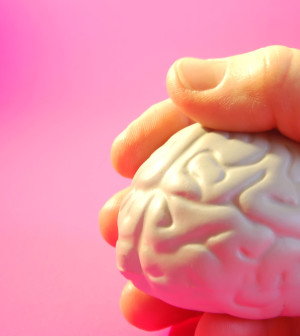- 8 Ways to Increase Dopamine Naturally
- 7 Best Breads for Maintaining Stable Blood Sugar
- Gelatin vs. Collagen: Which is Best for Skin, Nails, and Joints?
- The Long-Term Effects of Daily Turmeric Supplements on Liver Health
- Could Your Grocery Store Meat Be Causing Recurring UTIs?
- Are You Making This Expensive Thermostat Error This Winter?
- Recognizing the Signs of Hypothyroidism
- 10 Strategies to Overcome Insomnia
- Could Artificial Sweeteners Be Aging the Brain Faster?
- Techniques for Soothing Your Nervous System
Which Candidate? Study Examines the Voter’s Brain


Researchers say they’ve identified an area of the brain that seems to influence how you vote.
The investigators studied volunteers who were asked to assess and vote for candidates in a mock election.
The team at McGill University in Montreal said it appears that a certain part of the brain, called the lateral orbitofrontal cortex (LOFC), must function properly in order for voters to make decisions that combine various sources of information about candidates.
If this part of the brain is damaged, people seemed to base their vote on simpler information, mainly the candidates’ looks, according to the study.
The findings were published recently in the Journal of Neuroscience.
This is the first evidence that a particular area of the brain plays a critical role in how people vote, the researchers said.
“Recent research suggests that several areas in the brain carry information about the value of decision options, but it is not yet clear how these areas work together when we make a choice,” study senior author Dr. Lesley Fellows, a neurologist and researcher at the Montreal Neurological Institute at McGill, said in a university news release.
“The LOFC appears to be important when decisions are hard, helping to select the best from among options of similar value,” Fellows explained.
More information
McGill University has more about the brain.
Source: HealthDay
Copyright © 2026 HealthDay. All rights reserved.










